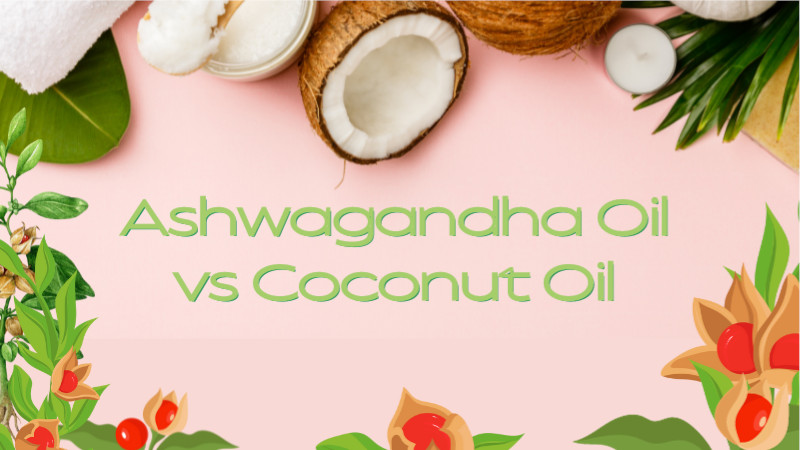As we consider the Ashwagandha Root vs Coconut Oil debate, we need to acknowledge that these are two natural products that have been gaining popularity in recent years. This is largely due to the promotion of their health benefits.
Both of these gifts from Nature are effective in promoting gut health. Not only that, they are understood to be effective in aiding your body to get rid of parasites.
However, before we dive right in, it is worth stating that there are some key differences between the two that are worth exploring. We will cover these as we take a much closer look at the Ashwagandha Root vs Coconut Oil discussion, and see what we can do to help you unlock knowledge of their amazing benefits!
In previous articles, we have gone into Ashwagandha with quite some detail. You may find the valerian root vs ashwagandha, or ashwagandha root vs turmeric conversations of interest.
Did you know that in acute forms of experimental stress, the ashwagandha components withanolide A and withaferin A (WL-A) have analgesic, mildly sedative, antistress, antioxidant, anti-inflammatory, antiapoptotic, anxiolytic, and immunomodulatory properties? 1
Not only is ashwagandha known for its adaptogenic properties, and enhancing cell-mediated immunity, effectively strengthening gut health, but the Authors of the study cited above made an interesting statement. It was stated that:
“Ashwagandha alcoholic leaf extract (i-Extract), rich in Wi-N, was shown to kill cancer cells selectively.”
K. Vaishnavi et al
Coconut oil, on the other hand, is a type of oil that is derived from the meat of coconuts.
It is high in saturated fats, which can help boost HDL (good) cholesterol levels in the body. However, some experts have raised concerns about the high levels of saturated fats in coconut oil and its potential negative impact on heart health.
Coconut oil has also been shown to have antimicrobial properties, which can help kill off harmful bacteria and parasites in the gut.
We will take a look at these concerns as we go deeper into this article.
Table of Contents
Ashwagandha Root vs Coconut Oil
Ashwagandha Root Benefits for Gut Health and Parasite Cleansing
Ashwagandha is known as a Rasayana in Ayurvedic medicine. Meaning, it promotes maintaining youth, both cognitively and physically.
Studies have shown that Ashwagandha root has antimicrobial properties that can help eliminate harmful parasites from the gut. 2
Also, Ashwagandha is traditionally known for its adaptogenic properties, which help in managing stress. Stress management is crucial for gut health, as stress can negatively impact gut flora and intestinal barrier function. By reducing stress, Ashwagandha may indirectly support a healthier gut environment, potentially aiding in the balance of gut microbiota and enhancing digestive health. 3
It also has anti-inflammatory properties that can help reduce gut inflammation and an analgesic that calms the neurological system’s response to pain. 4
The root of Ashwagandha has been traditionally used as an anthelmintic, meaning it can help expel parasitic worms from the body. 5
Its anti-inflammatory effects may soothe the gastrointestinal tract, reducing inflammation caused by parasites or other gut health issues. This dual action of combating parasites and mitigating inflammation can support the overall health and functioning of the gut. 6
Which is better Ashwagandha Root vs Leaf?
The two main varieties of extracts are root and leaf extracts. Even though the main form going into Ashwagandha capsules is typically the root, they both have a reputation for having potential advantages in Ayurvedic therapy.
Want to find out more about a powerful combo I recently discovered? Check out Ashwagandha with Black Seed Oil and Sea Moss!
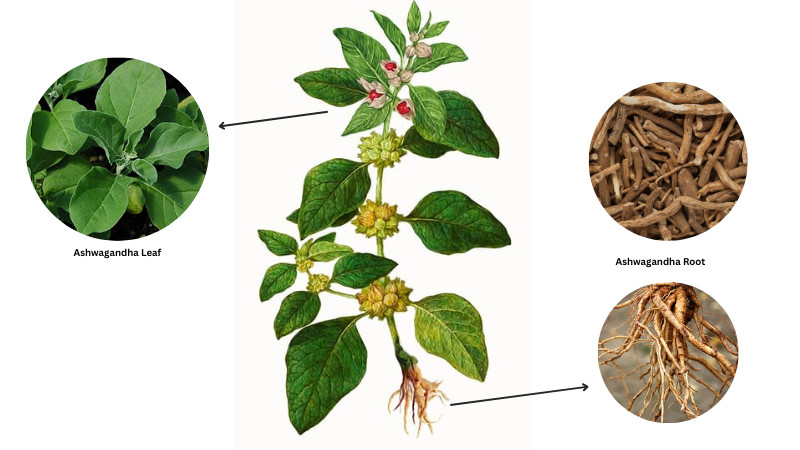
Withanolides, which make up the majority of Ashwagandha’s beneficial ingredients, are found in both components of the plant and are the biologically active compounds that give Ashwagandha its therapeutic characteristics.
As natural steroid lactones, they have been found to have a variety of pharmacological actions, including having: 7
- Anti-inflammatory
- Antioxidant
- Immunomodulatory, and
- Anti-cancer properties.
The levels of Withanone and Withanoside IV are greater in Ashwagandha leaves while its root has higher concentrations of withanolide A, a safe and well-tolerated withanolide with strong anti-inflammatory and neuroprotective benefits. 8 9
India’s Ministry of Ayush also stated that:
No substantial evidence and literature is available to endorse the efficacy of crude drug/extract of Withania somnifera leaves.
They issued this statement as an advisory against the use of ashwagandha leaves. 10
Most professional researchers also use the root of Ashwagandha as their basis in finding out its effectiveness and safety. 11
So, the growing body of in vitro and in vivo clinical studies clearly confirms the effectiveness and safety of ashwagandha root trumps the leaves.
Benefits of Coconut Oil for Gut Health
Coconut, also known as Cocos Nucifera and its oil can also help improve gut motility and reduce inflammation in the gut. It has been shown to improve the balance of gut bacteria, promoting the growth of beneficial bacteria while reducing the growth of harmful bacteria.
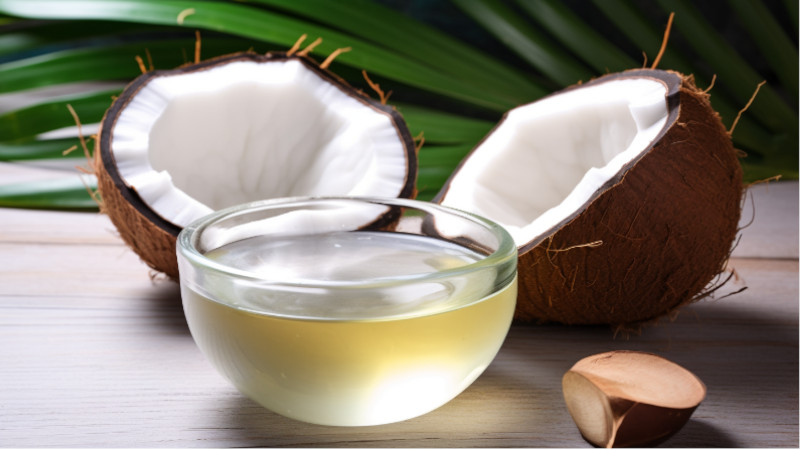
Lauric acid, an essential ingredient, is abundant in coconut oil and is anti-bacterial, anti-microbial, and anti-fungal. This substance offers great assistance in enhancing gut health and immunity. If your gut’s bacteria are out of balance, coconut oil can help you get them back in check. 12
Additionally, coconut oil is a popular cooking oil with numerous health benefits, including:
- antimicrobial properties 13
- antioxidant properties 14
- improved skin condition 15
- improves sexual function in women 16
- helps control weight gain caused by stress 17
Coconut oil is rich in medium-chain triglycerides (MCTs), a type of saturated fat, which may encourage fat-burning and promote weight loss. 18
Coconut Oil and Cholesterol: The Connection
Coconut oil is a bit of a puzzle when it comes to cholesterol. It’s got a whole 100% fat, and 80% to 90% saturated fat. Saturated fats are a type of fat that is solid at room temperature and is found in animal products like meat and dairy, as well as tropical oils like coconut and palm oil. 19
Some experts and doctors used to say it is bad news for our hearts because it could raise our cholesterol levels. But coconut oil is a bit different. It boosts the good cholesterol in our body, the HDL, which is like our heart’s buddy, keeping things running smoothly. 20 21
But before we start cheering for coconut oil, there’s a catch. It can also raise LDL cholesterol, which is not so helpful because it’s the type that can clog your arteries if you have too much of it which can lead to heart attacks. 22
Gregory B. Lim also concluded his clinical trial that:
Coconut oil should not be viewed as healthy oil for cardiovascular disease risk reduction, and limiting coconut oil consumption because of its high saturated fat content is warranted.
So you might ask, what foods contain saturated fat? Listed below are high in saturated fats that doctors and experts recommend consuming with caution to avoid heart problems and disease.
- beef 23
- pork 24
- butter 25
- cheese 26
- lard 27
- beef fat or tallow 28
- chicken skin 29
- food that is mixed with butter (e.g biscuits, chocolates, cakes, ice cream and more) 30 31
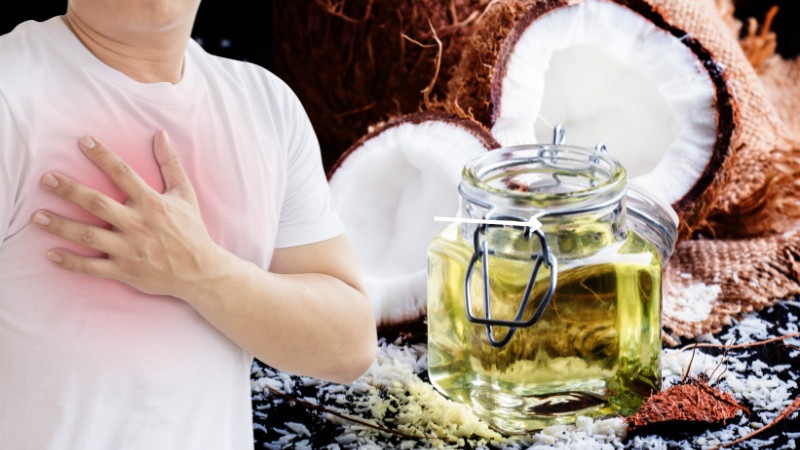
When it comes to coconut oil, it’s fair to say it’s got its pros and cons. Regular consumption of coconut oil can improve blood lipid levels, potentially supporting the heart and reducing the risk of chronic disease. 32
Another study found that coconut oil increased HDL and lowered the LDL to HDL ratio in women with abdominal obesity. M. Assuncao and her Team’s findings suggest coconut oil may be protective against heart disease. 33
While we’re on the topic of abdominal obesity, you might want to read up on fucoxanthin, which is found in some types of seaweed. We took a closer look at this when we considered ‘Is seaweed good for losing weight?’
Ashwagandha Oil vs Coconut Oil – Side Effects
As much as ashwagandha root and coconut oil are natural products that are generally safe for most people to use, they may cause side effects in some individuals.
For instance, ashwagandha root may cause gastrointestinal upset, nausea, and diarrhea, especially in high doses.
It may also interact with certain medications, such as sedatives, thyroid hormone replacement drugs, and immunosuppressants. 34
Coconut oil may also cause some side effects, such as:
- Increased the risk of strokes and heart diseases
- Allergies, where the symptoms can include:
- Nausea
- Vomiting
- Rashes
- Diarrhea
- Hives, and
- Eczema.
Additionally, it may interact with certain medications, such as blood thinners and diabetes drugs, so it is important to talk to your healthcare provider before using coconut oil, especially if you have a preexisting medical condition. 35
Did you know that the FDA classifies coconut as a tree nut, but it is actually classified as a fruit?
Even though coconut oil allergies are rare, due to the uniqueness of coconut protein limiting cross-allergic reactions, there have been cases of children with tree nut allergies developing coconut allergies.
A study by the European Society of Pediatric Allergy and Immunology found that children with tree nut or peanut allergies are not more likely to be sensitive to coconut. 36
Ashwagandha Oil vs Coconut Oil – Precautions
When using ashwagandha root and coconut oil for gut health and parasite cleansing, it is important to follow some precautions to ensure their safety and effectiveness.
Humans have struggled with parasites for as long as we have existed, and parasitic infections are extremely common. However, unlike other medical illnesses, parasitic infections are not as widely treated for a variety of reasons, and many people are unaware that they are carriers of several parasite species.
Instead of ignoring parasites and acting as though they don’t exist while experiencing the negative impacts they have on our health, we should educate ourselves about them, and learn how to get rid of them.
Since Coconut oil has anti-parasitic properties, it can fight parasitic infections and human diseases such as malaria, Chagas’ disease, and leishmaniasis. 37
Malaria is an infectious and serious disease caused by a parasite called Plasmodium falciparum and is transmitted and spread through the bite of a female Anopheles mosquito. A study conducted by B. Widjanarko and team concluded that virgin coconut oil can reduce parasitemia or the amount of parasites in the blood due to the presence of antioxidant content and can help with the consideration of antimalarial medication. 38
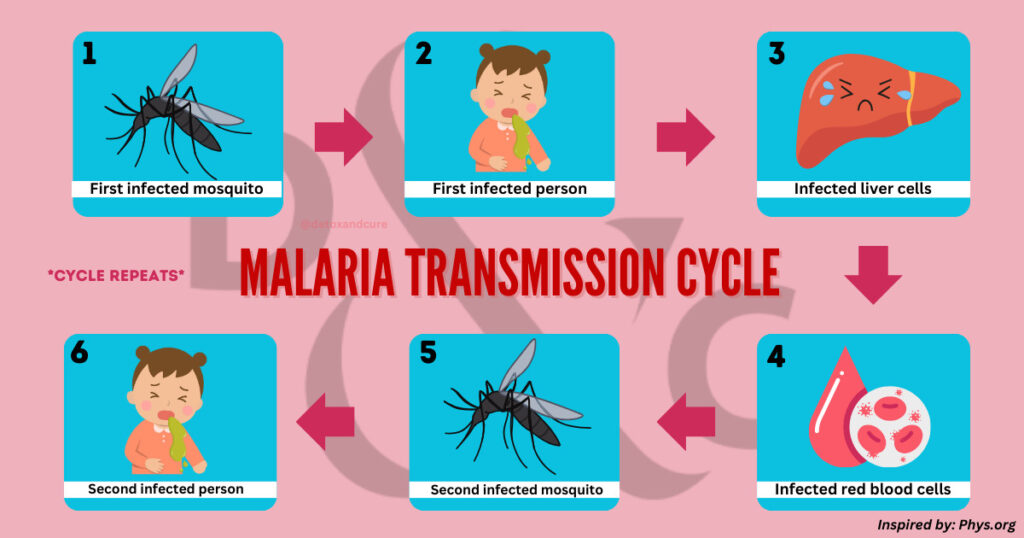
Chagas disease, also known as American trypanosomiasis, is named after Carlos Ribeiro Justiniano Chagas, who discovered the disease, is a potentially life-threatening illness, if not treated early, contracted from exposure to the protozoan parasite Trypanosoma cruzi.
This little critter is also commonly referred to as the kissing bug. Chagas disease is contracted primarily through exposure to the feces or urine of bugs after the bug bites. It normally defecates near the site of the bite, and this is unknowingly spread by the person who was bitten when they rub the bite. 39
There’s been a study that coconut oil can also help kill and reduce the parasites in the body, but further research and gathering of data will be needed to further support this study. 37
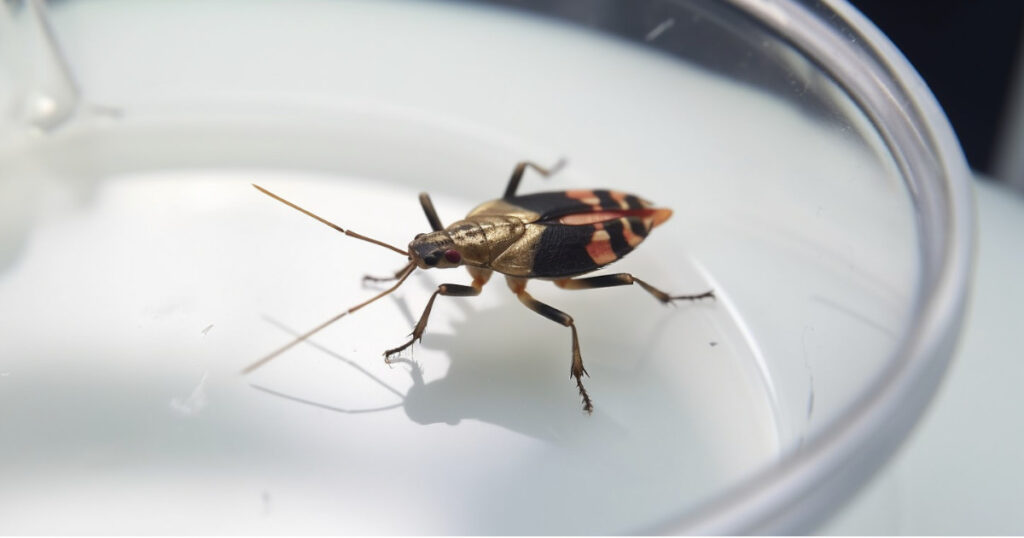
On the other hand, Leishmaniasis is a protozoa parasite caused by over 20 species, with over 90 sandfly species transmitting through bites of infected female sandflies and has three forms:
- Visceral leishmaniasis (VL), which is fatal if left untreated 40
- Cutaneous leishmaniasis (CL), which causes skin lesions, and
- Mucocutaneous leishmaniasis, which destroys mucous membranes.
An in vitro study has shown that coconut water, a cheaper alternative to expensive Fetal Calf Serum, which is a common growth supplement used in laboratory cultures to provide nutrients and support the growth of cells, can help Leishmaniasis grow so they did a test lab. But it turns out, that coconut water doesn’t help promastigotes parasites grow. So, this means that coconut water can help lessen the growth of Leishmaniasis in an infected person. 41
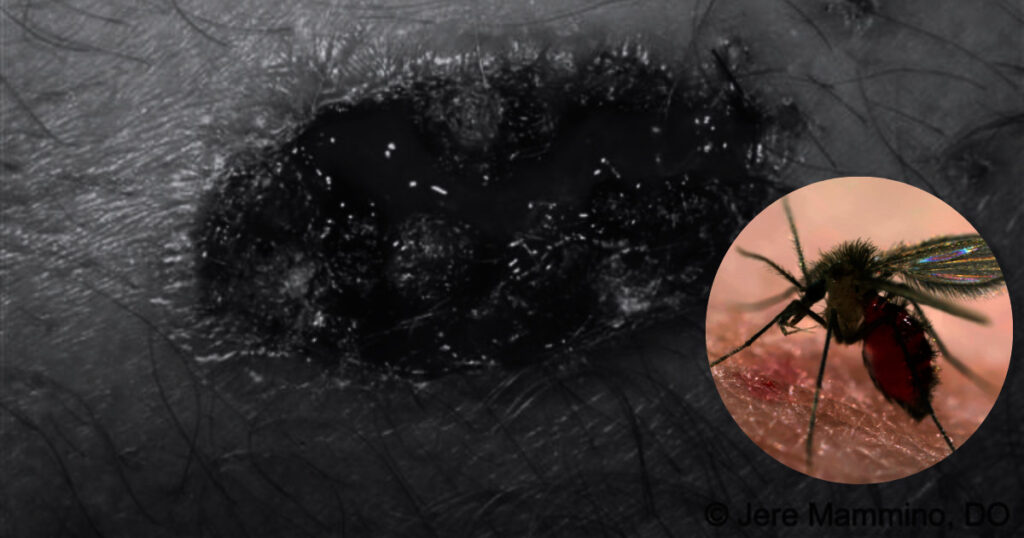
FAQs
Is Ashwagandha root or Coconut Oil better for gut health?
Both Ashwagandha root and Coconut Oil have been shown to have positive effects on gut health.
Ashwagandha root has been used in Ayurvedic medicine for centuries to treat digestive issues and promote overall health. It has been shown to have anti-inflammatory properties and can help reduce stress, which can positively affect gut health.
Coconut Oil, on the other hand, contains medium-chain fatty acids that are easily digested and can help improve gut health by reducing inflammation and promoting the growth of healthy gut bacteria. So, the choice between Ashwagandha root and Coconut Oil may depend on individual preferences and health goals.
Can Ashwagandha root or Coconut Oil help with parasite cleansing?
There is limited research on the effectiveness of Ashwagandha root or Coconut Oil for parasite cleansing.
While some studies suggest that Ashwagandha root may have anti-parasitic properties, more research is needed to confirm these findings.
On the other hand, coconut oil has been shown to have anti-parasitic properties and may be effective in treating certain types of parasites. However, it is important to note that Coconut Oil should not be used as a substitute for medical treatment for parasitic infections.
How do you know if Coconut oil has gone bad?
Detecting spoilage in coconut oil can be discerned through several indicators.
A rancid or sour smell, rather than its typical fresh and light coconut aroma, is a primary sign.
Changes in colour, such as yellowing or darkening, and the presence of mould or irregular consistency, are also clear indicators that the coconut oil should no longer be used.
Will Coconut oil kill fleas on cats?
While coconut oil has been touted to have various health benefits, its efficacy in exterminating fleas on pets is largely anecdotal.
The oil can indeed suffocate fleas due to its high in lauric acid when applied to the cat’s coat. However, it’s not a comprehensive solution for an infestation. Pet owners should consult veterinarians for more effective and holistic flea control methods.
Can Coconut oil help sunburn?
Applying coconut oil to sunburned skin can have a calming effect because of its famed hydrating qualities.
To prevent heat from being trapped, which might worsen the burn, it’s crucial to wait until the heat from the sunburn has cooled off. For severe sunburns, medical advice should be sought.
Conclusion
While both Ashwagandha root and Coconut Oil have potential benefits for gut health and parasite cleansing, more research is needed to fully understand their effectiveness. It is important to talk to a healthcare provider before using either of these supplements, especially if you have any underlying health conditions or are taking any medications.
We want to hear from you, so join the Ashwagandha root vs Coconut oil conversation and share your thoughts and insight on Instagram and Pinterest about ‘Ashwagandha root vs Coconut oil’ and let’s journey to a healthy and holistic body together!
References
- “Differential Activities of the Two Closely Related Withanolides, Withaferin A and Withanone: Bioinformatics and Experimental Evidences” – K. Vaishnavi, N. Saxena, N. Shah, R. Singh, K. Manjunath, M. Uthayakumar, S. Kanaujia, S. Kaul, K. Sekar, R. Wadhwa, 4 September 2012 [PubMed Central] [Archive]
- “Antibacterial and Antifungal Activity of Ashwagandha (Withania somnifera L.): A Review” – N. Khanchandani, T. Kalwani, P. Shah, A. Ardeshna, 15 October 2019 [Research Gate] [Archive]
- “Health Benefits of Ashwagandha, Based on Research” – J. Kubala, F. Spritzler, Last checked 15 November 2023 [Healthline] [Archive]
- “An Overview on Ashwagandha: A Rasayana (Rejuvenator) of Ayurveda” – N. Singh, M. Bhalla, P. de Jager, M. Gilca, 3 July 2011 [PubMed Central] [Archive]
- “In Vitro Anthelmintic Activity of Extracts of Withania Somnifera” – Z. Saddiqe, S. Khalid, A. Maimoona, Last checked 15 November 2023 [Journal of Natural and Applied Sciences Pakistan] [Archive]
- “Triethylene glycol-like effects of Ashwagandha (Withania somnifera (L.) Dunal) root extract devoid of withanolides in stressed mice” – A. Dey, S. Chatterjee, V. Kumar, Last checked 15 November 2023 [PubMed Central] [Archive]
- “Natural Withanolides in the Treatment of Chronic Diseases” – P. White, C. Subramanian, H. Motiwala, M. Cohen, 25 September 2016 [PubMed Central] [Archive]
- “Withanolide-A treatment exerts a neuroprotective effect via inhibiting neuroinflammation in the hippocampus after pilocarpine-induced status epilepticus” – J. Zhu, S. Park, K. Jeong, W. Kim, 10 June 2020 [PubMed] [Archive]
- “Comprehensive metabolic fingerprinting of Withania somnifera leaf and root extracts” – S. Chatterjee, S. Srivastava, A. Khalid, N. Singh, R. Sangwan, O. Sidhu, R. Roy, C. Khetrapal, R. Tuli, 17 May 2010 [PubMed] [Archive]
- “Subject- Advisory for refrain from use of Aswagandlza (Wit/zania sonznjfera) leaves.” – Ministry of Ayush Staff, 9 November 2021 [Government of India: Ministry of Ayush] [Archive]
- “A Prospective, Randomized Double-Blind, Placebo-Controlled Study of Safety and Efficacy of a High-Concentration Full-Spectrum Extract of Ashwagandha Root in Reducing Stress and Anxiety in Adults” – K. Chandrasekhar, J. Kapoor, S. Anishetty, Last checked 15 November 2023 [PubMed Central] [Archive]
- “Coconut oil and palm oil’s role in nutrition, health and national development: A review” – L. Boateng, R. Ansong, W. Owusu, M. Asiedu, Last checked 15 November 2021 [PubMed Central] [Archive]
- “Antibacterial activity of Withania somnifera against Gram-positive isolates from pus samples” – P. Bisht, V. Rawat, Last checked 15 November 2023 [PubMed Central] [Archive]
- “Iron Chelation and Antioxidant Properties of Withania somnifera (Ashwagandha) Restore Fertility in Men and Women” – R. Joshi, P. Yadav, S. Parab, H. Tuli, H. Buttar, G. Kaur, 28 April 2023 [Bentham Science] [Archive]
- “A Study of Efficacy and Safety of Ashwagandha (Withania somnifera) Lotion on Facial Skin in Photoaged Healthy Adults” – K. Nerra, S. Naik, A. Ghatge, 15 March 2023 [PubMed] [Archive]
- “Ashwagandha (Withania somnifera)—Current Research on the Health-Promoting Activities: A Narrative Review” – P. Mikulska, M. Malinowska, M. Ignacyk, P. Szustowski, J. Nowak, K. Pesta, M. Szelaq, D, Szklanny, E. Judasz, G. Kaczmarek, O. Eijohou, M. Walendowska, A. Gosciniak, J. Pintek, 24 March 2023 [MDPI] [Archive]
- “Ashwagandha Helps Manage Stress-Related Weight Gain” – T. Hudson, 2 November 2016 [Natural Medicine Journal] [Archive]
- “Triglycerides of medium-chain fatty acids: a concise review” – H. Jadhav, U. Annapure, 22 June 2022 [PubMed Central] [Archive]
- “Saturated Fat” – American Heart Association Editorial Staff, 1 November 2021 [American Heart Association] [Archive]
- “The Nutrition Source: Coconut Oil” – HSPH Staff, Last checked 15 November 2023 [Harvard University: School of Public Health] [Archive]
- “Don’t get tricked by these 3 heart-health myths” – Mayo Clinic Staff, 24 April 2019 [Mayo Clinic] [Archive]
- “Coconut oil raises LDL-cholesterol levels” – G. Lim, 6 February 2020 [Nature Reviews Cardiology] [Archive]
- “Saturated Fat and Beef Fat as Related to Human Health” – E. Doyle, Last checked 15 November 2023 [FRI Briefings] [Archive]
- “Effects of Dietary Pork Fat Cooked Using Different Methods on Glucose and Lipid Metabolism, Liver Inflammation and Gut Microbiota in Rats” – W. Zhu, Y. Xu, J. Liu, D. Chen, H. Zhang, Z. Yang, X. Zhou, 6 December 2021 [PubMed Central] [Archive]
- “Randomised trial of coconut oil, olive oil or butter on blood lipids and other cardiovascular risk factors in healthy men and women” – K. Khaw, S. Sharp, L. Finikarides, I. Afzal, M. Lentjes, R. Luben, N. Forouhi, Last checked 15 November 2023 [BMJ Journals] [Archive]
- “The Nutrition Source: Cheese” – HSPH Staff, Last checked 15 November 2023 [Harvard University: School of Public Health] [Archive]
- “How Coconut Oil Affects Heart Health” – J. Savitz, 1 March 2023 [Institue of Food Technologists] [Archive]
- “Role of beef and beef tallow, an enriched source of stearic acid, in a cholesterol-lowering diet” – M. Denke, Last checked 15 November 2023 [PubMed] [Archive]
- “White Meat Consumption and Cardiometabolic Risk Factors: A Review of Recent Prospective Cohort Studies” – E. Damigou, R. Kotsi, D. Panagiotakos, 7 December 2022 [PubMed Central] [Archive]
- “Saturated fat replacement in short dough biscuits with HPMC and lecithin stabilised nanoemulsions” – J. Kampa, S. Bull, A. Signorello, R. Frazier, J. Garcia, 7 June 2023 [PubMed] [Archive]
- “Reformulation and Priorities for Reducing Energy Density; Results from a Cross-Sectional Survey on Fat Content in Pre-Packed Cakes and Biscuits Sold in British Supermarkets” – R. Alessandrini, K. Hashem, 28 May 2019 [Research Gate] [Archive]
- “Randomised trial of coconut oil, olive oil or butter on blood lipids and other cardiovascular risk factors in healthy men and women” – K. Khaw, S. Sharp, L. Finikarides, I. Afzal, M. Lentjes, R. Luben, N. Forouhi, 6 March 2018 [PubMed Central] [Archive]
- “Effects of dietary coconut oil on the biochemical and anthropometric profiles of women presenting abdominal obesity” – M. Assuncao, H. Ferreira, A. Santos, C. Cabral, T. Florencio, 13 May 2009 [PubMed] [Archive]
- “Health Benefits of Ashwagandha” – J. Hall, 1 May 2023 [health.com] [Archive]
- “Am I Allergic to Coconut Oil?” – C. Brusie, 3 October 2018 [Healthline] [Archive]
- “Section 201(qq) of the Act defines the term “major food allergen” to include “tree nuts.” In addition to the three examples provided in section 201(qq) (almonds, pecans, and walnuts), what nuts are considered “tree nuts?” – FDA Staff, 19 May 2023 [Food and Drug Administration] [Archive]
- “Analysis of the antiparasitic and anticancer activity of the coconut palm (Cocos nucifera L. ARECACEAE) from the natural reserve of Punta Patiño, Darién” – N. Tayler, C. Boya, L. Herrera, J. Moy, M. Ng, L. Pineda, A. Almanza, S. Rosero, L. Coronado, R. Correa, R. Santamaria, Z. Caballero, A. Archibold, K. Tidgewell, M. Balunas, W. Gerwick, A. Spadafora, M. Gutierrez, C. Spadafora, 2 April 2019 [PubMed Central] [Archive]
- “Antimalarial activity of Virgin Coconut Oil against Plasmodium berghei ANKA in mice” – B. Widjanarko, P. Wardhani, H. Arwati, Last checked 16 November 2023 [International Journal of Scientific Advances] [Archive]
- “Chagas disease (also known as American trypanosomiasis)” – WHO Editorial Team, 6 April 2023 [World Health Organization] [Archive]
- “Leishmaniasis” – WHO Editorial Team, 12 January 2023 [World Health Organization] [Archive]
- “Evaluating the Coconut Water as a Replacement for the Fetal Calf Serum in Cultivation of Promastigotes of Leishmania Infantum” – V. Nasiri, G. Karimi, H. Paykari, G. Motamedi, S. Rivaz, M. M. Eslampanah, 26 June 2016 [International Journal of Medical Laboratory] [Archive]
- “Differential Activities of the Two Closely Related Withanolides, Withaferin A and Withanone: Bioinformatics and Experimental Evidences” – K. Vaishnavi, N. Saxena, N. Shah, R. Singh, K. Manjunath, M. Uthayakumar, S. Kanaujia, S. Kaul, K. Sekar, R. Wadhwa, 4 September 2012 [PubMed Central] [Archive] ↩︎
- “Antibacterial and Antifungal Activity of Ashwagandha (Withania somnifera L.): A Review” – N. Khanchandani, T. Kalwani, P. Shah, A. Ardeshna, 15 October 2019 [Research Gate] [Archive] ↩︎
- “Health Benefits of Ashwagandha, Based on Research” – J. Kubala, F. Spritzler, Last checked 15 November 2023 [Healthline] [Archive] ↩︎
- “An Overview on Ashwagandha: A Rasayana (Rejuvenator) of Ayurveda” – N. Singh, M. Bhalla, P. de Jager, M. Gilca, 3 July 2011 [PubMed Central] [Archive] ↩︎
- “In Vitro Anthelmintic Activity of Extracts of Withania Somnifera” – Z. Saddiqe, S. Khalid, A. Maimoona, Last checked 15 November 2023 [Journal of Natural and Applied Sciences Pakistan] [Archive] ↩︎
- “Triethylene glycol-like effects of Ashwagandha (Withania somnifera (L.) Dunal) root extract devoid of withanolides in stressed mice” – A. Dey, S. Chatterjee, V. Kumar, Last checked 15 November 2023 [PubMed Central] [Archive] ↩︎
- “Natural Withanolides in the Treatment of Chronic Diseases” – P. White, C. Subramanian, H. Motiwala, M. Cohen, 25 September 2016 [PubMed Central] [Archive] ↩︎
- “Withanolide-A treatment exerts a neuroprotective effect via inhibiting neuroinflammation in the hippocampus after pilocarpine-induced status epilepticus” – J. Zhu, S. Park, K. Jeong, W. Kim, 10 June 2020 [PubMed] [Archive] ↩︎
- “Comprehensive metabolic fingerprinting of Withania somnifera leaf and root extracts” – S. Chatterjee, S. Srivastava, A. Khalid, N. Singh, R. Sangwan, O. Sidhu, R. Roy, C. Khetrapal, R. Tuli, 17 May 2010 [PubMed] [Archive] ↩︎
- “Subject- Advisory for refrain from use of Aswagandlza (Wit/zania sonznjfera) leaves.” – Ministry of Ayush Staff, 9 November 2021 [Government of India: Ministry of Ayush] [Archive] ↩︎
- “A Prospective, Randomized Double-Blind, Placebo-Controlled Study of Safety and Efficacy of a High-Concentration Full-Spectrum Extract of Ashwagandha Root in Reducing Stress and Anxiety in Adults” – K. Chandrasekhar, J. Kapoor, S. Anishetty, Last checked 15 November 2023 [PubMed Central] [Archive] ↩︎
- “Coconut oil and palm oil’s role in nutrition, health and national development: A review” – L. Boateng, R. Ansong, W. Owusu, M. Asiedu, Last checked 15 November 2021 [PubMed Central] [Archive] ↩︎
- “Antibacterial activity of Withania somnifera against Gram-positive isolates from pus samples” – P. Bisht, V. Rawat, Last checked 15 November 2023 [PubMed Central] [Archive] ↩︎
- “Iron Chelation and Antioxidant Properties of Withania somnifera (Ashwagandha) Restore Fertility in Men and Women” – R. Joshi, P. Yadav, S. Parab, H. Tuli, H. Buttar, G. Kaur, 28 April 2023 [Bentham Science] [Archive] ↩︎
- “A Study of Efficacy and Safety of Ashwagandha (Withania somnifera) Lotion on Facial Skin in Photoaged Healthy Adults” – K. Nerra, S. Naik, A. Ghatge, 15 March 2023 [PubMed] [Archive] ↩︎
- “Ashwagandha (Withania somnifera)—Current Research on the Health-Promoting Activities: A Narrative Review” – P. Mikulska, M. Malinowska, M. Ignacyk, P. Szustowski, J. Nowak, K. Pesta, M. Szelaq, D, Szklanny, E. Judasz, G. Kaczmarek, O. Eijohou, M. Walendowska, A. Gosciniak, J. Pintek, 24 March 2023 [MDPI] [Archive] ↩︎
- “Ashwagandha Helps Manage Stress-Related Weight Gain” – T. Hudson, 2 November 2016 [Natural Medicine Journal] [Archive] ↩︎
- “Triglycerides of medium-chain fatty acids: a concise review” – H. Jadhav, U. Annapure, 22 June 2022 [PubMed Central] [Archive] ↩︎
- “Saturated Fat” – American Heart Association Editorial Staff, 1 November 2021 [American Heart Association] [Archive] ↩︎
- “The Nutrition Source: Coconut Oil” – HSPH Staff, Last checked 15 November 2023 [Harvard University: School of Public Health] [Archive] ↩︎
- “Don’t get tricked by these 3 heart-health myths” – Mayo Clinic Staff, 24 April 2019 [Mayo Clinic] [Archive] ↩︎
- “Coconut oil raises LDL-cholesterol levels” – G. Lim, 6 February 2020 [Nature Reviews Cardiology] [Archive] ↩︎
- “Saturated Fat and Beef Fat as Related to Human Health” – E. Doyle, Last checked 15 November 2023 [FRI Briefings] [Archive] ↩︎
- “Effects of Dietary Pork Fat Cooked Using Different Methods on Glucose and Lipid Metabolism, Liver Inflammation and Gut Microbiota in Rats” – W. Zhu, Y. Xu, J. Liu, D. Chen, H. Zhang, Z. Yang, X. Zhou, 6 December 2021 [PubMed Central] [Archive] ↩︎
- “Randomised trial of coconut oil, olive oil or butter on blood lipids and other cardiovascular risk factors in healthy men and women” – K. Khaw, S. Sharp, L. Finikarides, I. Afzal, M. Lentjes, R. Luben, N. Forouhi, Last checked 15 November 2023 [BMJ Journals] [Archive] ↩︎
- “The Nutrition Source: Cheese” – HSPH Staff, Last checked 15 November 2023 [Harvard University: School of Public Health] [Archive] ↩︎
- “How Coconut Oil Affects Heart Health” – J. Savitz, 1 March 2023 [Institue of Food Technologists] [Archive] ↩︎
- “Role of beef and beef tallow, an enriched source of stearic acid, in a cholesterol-lowering diet” – M. Denke, Last checked 15 November 2023 [PubMed] [Archive] ↩︎
- “White Meat Consumption and Cardiometabolic Risk Factors: A Review of Recent Prospective Cohort Studies” – E. Damigou, R. Kotsi, D. Panagiotakos, 7 December 2022 [PubMed Central] [Archive] ↩︎
- “Saturated fat replacement in short dough biscuits with HPMC and lecithin stabilised nanoemulsions” – J. Kampa, S. Bull, A. Signorello, R. Frazier, J. Garcia, 7 June 2023 [PubMed] [Archive] ↩︎
- “Reformulation and Priorities for Reducing Energy Density; Results from a Cross-Sectional Survey on Fat Content in Pre-Packed Cakes and Biscuits Sold in British Supermarkets” – R. Alessandrini, K. Hashem, 28 May 2019 [Research Gate] [Archive] ↩︎
- “Randomised trial of coconut oil, olive oil or butter on blood lipids and other cardiovascular risk factors in healthy men and women” – K. Khaw, S. Sharp, L. Finikarides, I. Afzal, M. Lentjes, R. Luben, N. Forouhi, 6 March 2018 [PubMed Central] [Archive] ↩︎
- “Effects of dietary coconut oil on the biochemical and anthropometric profiles of women presenting abdominal obesity” – M. Assuncao, H. Ferreira, A. Santos, C. Cabral, T. Florencio, 13 May 2009 [PubMed] [Archive] ↩︎
- “Health Benefits of Ashwagandha” – J. Hall, 1 May 2023 [health.com] [Archive] ↩︎
- “Am I Allergic to Coconut Oil?” – C. Brusie, 3 October 2018 [Healthline] [Archive] ↩︎
- “Section 201(qq) of the Act defines the term “major food allergen” to include “tree nuts.” In addition to the three examples provided in section 201(qq) (almonds, pecans, and walnuts), what nuts are considered “tree nuts?” – FDA Staff, 19 May 2023 [Food and Drug Administration] [Archive] ↩︎
- “Analysis of the antiparasitic and anticancer activity of the coconut palm (Cocos nucifera L. ARECACEAE) from the natural reserve of Punta Patiño, Darién” – N. Tayler, C. Boya, L. Herrera, J. Moy, M. Ng, L. Pineda, A. Almanza, S. Rosero, L. Coronado, R. Correa, R. Santamaria, Z. Caballero, A. Archibold, K. Tidgewell, M. Balunas, W. Gerwick, A. Spadafora, M. Gutierrez, C. Spadafora, 2 April 2019 [PubMed Central] [Archive] ↩︎
- “Antimalarial activity of Virgin Coconut Oil against Plasmodium berghei ANKA in mice” – B. Widjanarko, P. Wardhani, H. Arwati, Last checked 16 November 2023 [International Journal of Scientific Advances] [Archive] ↩︎
- “Chagas disease (also known as American trypanosomiasis)” – WHO Editorial Team, 6 April 2023 [World Health Organization] [Archive] ↩︎
- “Leishmaniasis” – WHO Editorial Team, 12 January 2023 [World Health Organization] [Archive] ↩︎
- “Evaluating the Coconut Water as a Replacement for the Fetal Calf Serum in Cultivation of Promastigotes of Leishmania Infantum” – V. Nasiri, G. Karimi, H. Paykari, G. Motamedi, S. Rivaz, M. M. Eslampanah, 26 June 2016 [International Journal of Medical Laboratory] [Archive] ↩︎
Last Updated on 6 months by D&C Editorial Team
